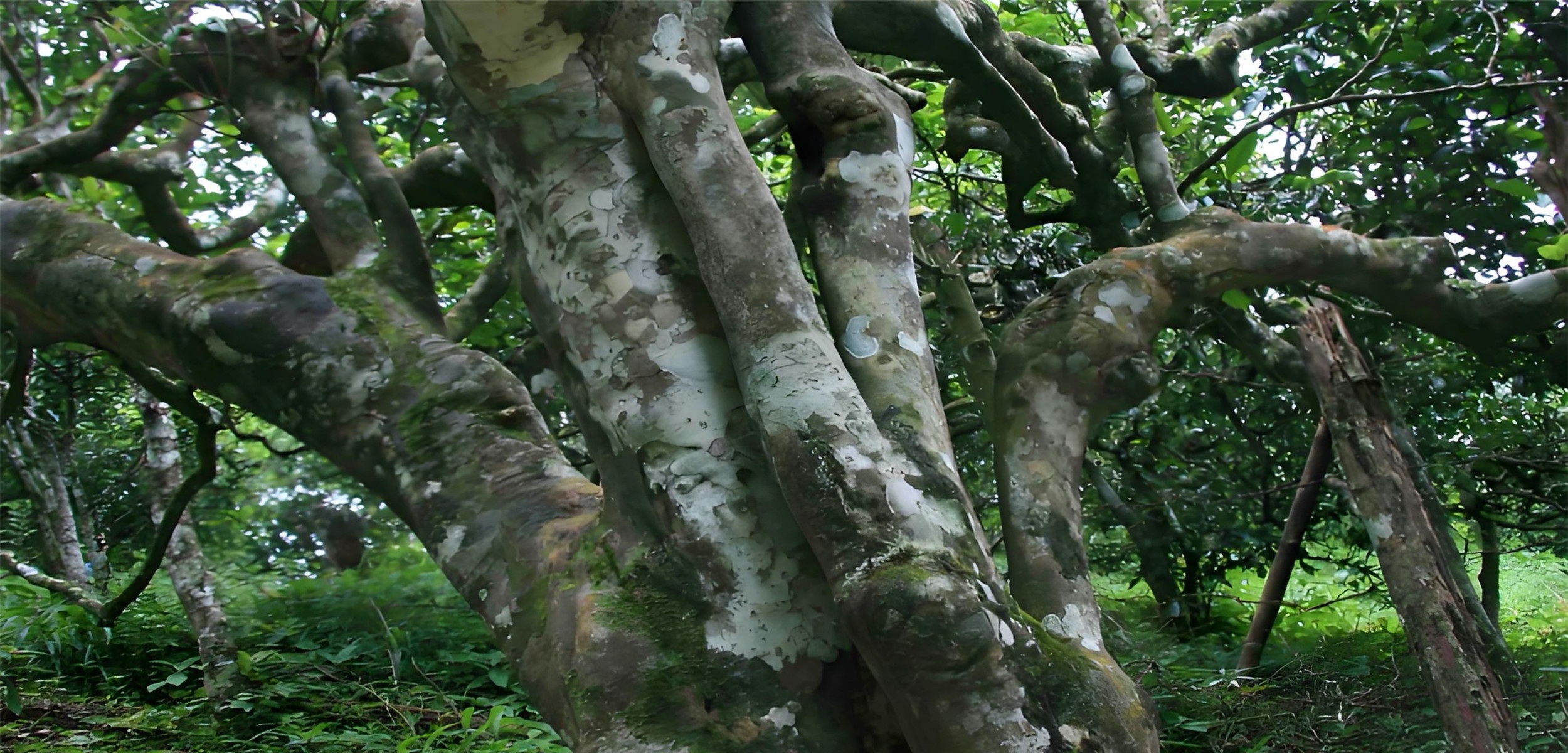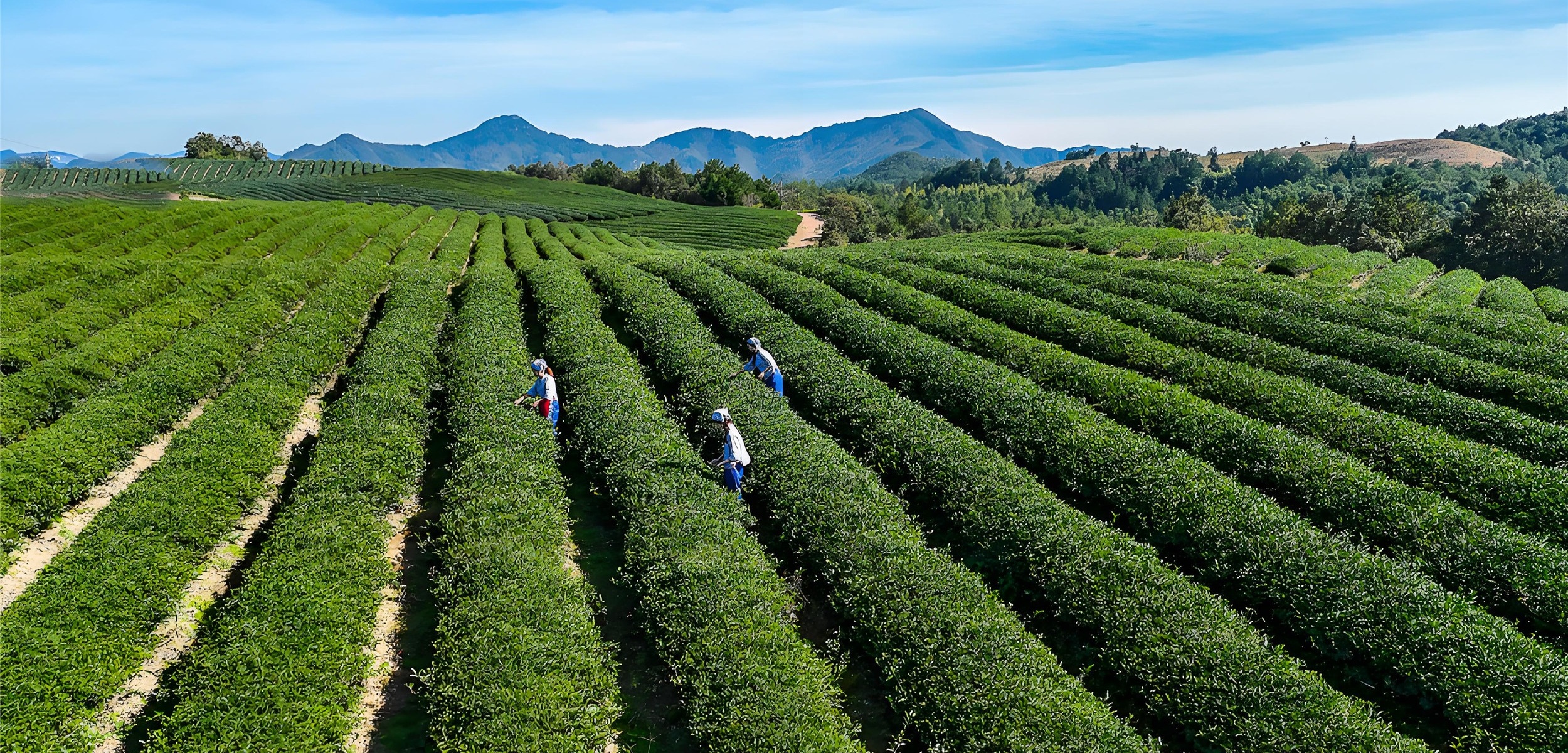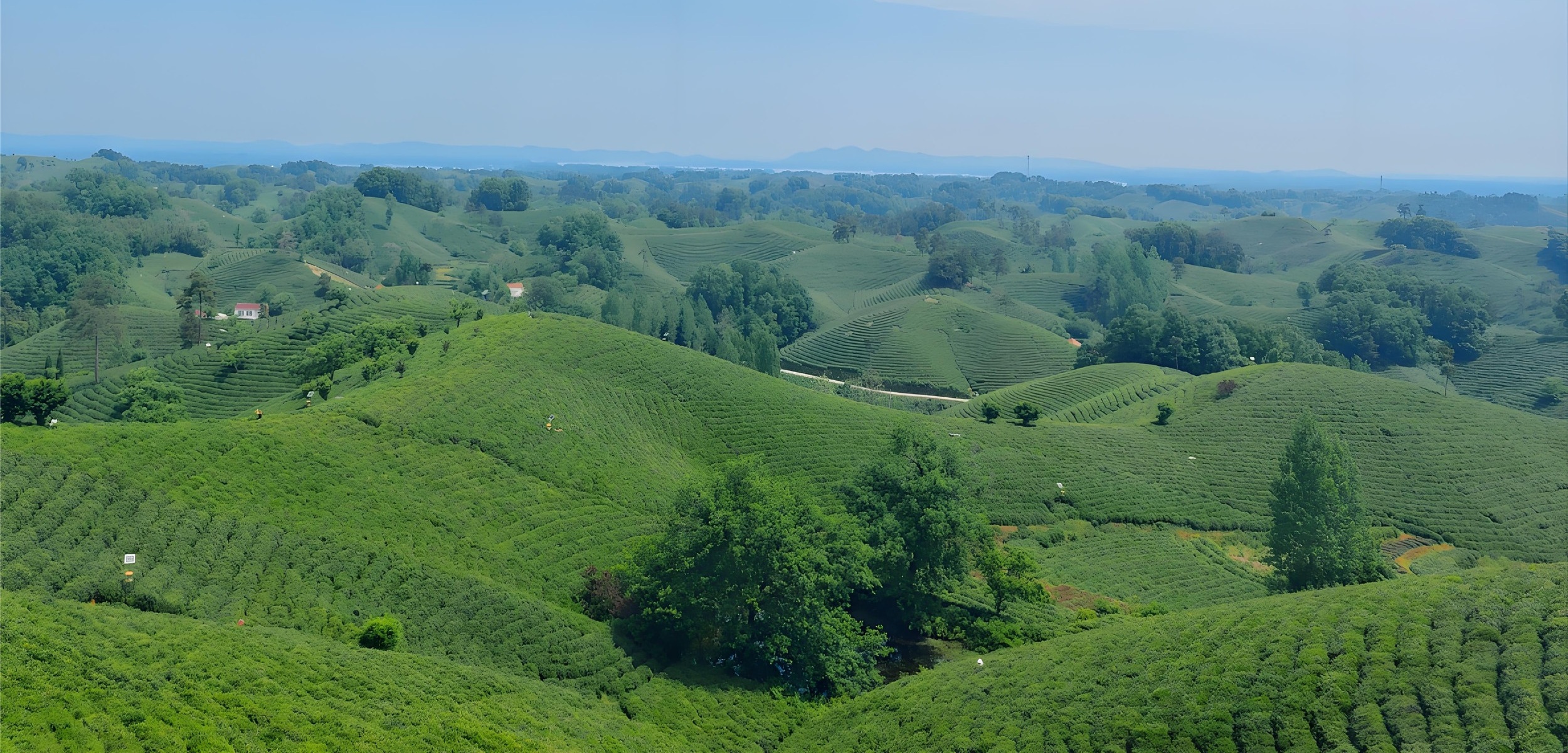我国首个“全国茶叶碳足迹数字化平台”发布 China's first 'National Tea Carbon Footprint Digital Platform' released
新华社 我国首个聚焦茶叶全产业链碳足迹管理的数字化平台——“全国茶叶碳足迹数字化平台”近日对外发布,旨在为建立全国统一的农产品碳标识认证制度探索路径。 “建设这个平台的目标很明确,就是要对茶叶实现全产业链碳足迹的精准量化与管理。”在浙江安吉日前举行的“一国一品”生态低碳茶技术交流研讨会上,中国农业科学院茶叶研究所茶树种植工程研究中心主任李鑫说。 2023年,国家发展改革委等部门对外发布《关于加快建立产品碳足迹管理体系的意见》,意见提出推动建立符合国情实际的产品碳足迹管理体系,完善重点产品碳足迹核算方法规则和标准体系,建立产品碳足迹背景数据库,推进产品碳标识认证制度建设,拓展和丰富应用场景,发挥产品碳足迹管理体系对生产生活方式绿色低碳转型的促进作用。 李鑫介绍,此次发布的平台,是围绕茶产业碳足迹建立相关核算量化体系和数据库,并推动碳足迹认证结果的广泛应用,比如让消费者扫码就能看到这包茶有多“绿”,甚至未来可能用于碳汇交易,助力茶产业绿色发展。 此次研讨会上,与会代表们还聚焦生态低碳茶推进茶产业绿色低碳转型,交流农业减排固碳措施、茶产业高质量发展及生态价值实现路径,为进一步创新发展生态低碳茶体系指明方向。 “所谓生态低碳茶,指的是具备优质、安全、低碳特性,并通过专业机构认证的茶叶产品。此类茶叶要求认证茶企科学构建和管理茶园及周边生态环境,打造既环境优美又适宜茶树生长的茶园生态系统,同时,通过一些减排固碳的措施,降低茶园管理以及茶叶加工过程中的碳排放,实现高质量发展。”李鑫说。 据悉,我国生态低碳茶已入选联合国粮农组织“一国一品”项目。此项目是联合国粮农组织于2021年启动的一项五年计划,总体目标是增加健康食品的获取途径,改善农民生计和促进经济增长,减少粮食损失和浪费,同时最大限度地减少化学品投入和自然资源的使用,以减轻农业生产对环境和生物多样性的负面影响。 记者了解到,目前,我国生态低碳茶已在16个省份推广,认证茶企131家,覆盖10.3万亩茶园,辐射面积达100万亩以上。 此次研讨会由全国农业技术推广服务中心、中国农业科学院茶叶研究所联合举办。“全国茶叶碳足迹数字化平台”由中国农业科学院茶叶研究所联合全国农业技术推广服务中心和浙江甲骨文超级码科技股份有限公司共同研发。(记者韩佳诺)
The first digital platform in China that focuses on carbon footprint management of the entire tea industry chain, the "National Tea Carbon Footprint Digital Platform," has recently been released to the public, aiming to explore a path for establishing a unified national agricultural product carbon labeling and certification system. The goal of building this platform is very clear, which is to achieve precise quantification and management of the carbon footprint of the entire tea industry chain, "said Li Xin, director of the Tea Planting Engineering Research Center of the Tea Research Institute of the Chinese Academy of Agricultural Sciences, at the" One Country, One Product "Ecological Low Carbon Tea Technology Exchange Seminar held in Anji, Zhejiang recently. In 2023, the National Development and Reform Commission and other departments issued the "Opinions on Accelerating the Establishment of a Product Carbon Footprint Management System", which proposed to promote the establishment of a product carbon footprint management system that is in line with national conditions, improve the accounting methods, rules, and standard systems for key products, establish a product carbon footprint background database, promote the construction of a product carbon labeling and certification system, expand and enrich application scenarios, and give full play to the promoting role of the product carbon footprint management system in the green and low-carbon transformation of production and lifestyle. Li Xin introduced that the platform released this time is aimed at establishing a quantitative accounting system and database around the carbon footprint of the tea industry, and promoting the widespread application of carbon footprint certification results. For example, consumers can scan the code to see how "green" this tea is, and it may even be used for carbon sequestration transactions in the future, helping the green development of the tea industry. At this seminar, the attending representatives also focused on promoting the green and low-carbon transformation of the tea industry through ecological low-carbon tea, exchanging measures for agricultural emission reduction and carbon fixation, high-quality development of the tea industry, and the path to realizing ecological value, pointing out the direction for further innovative development of the ecological low-carbon tea system. The so-called ecological low-carbon tea refers to tea products that have high-quality, safe, low-carbon characteristics and have been certified by professional institutions. This type of tea requires certified tea companies to scientifically construct and manage tea gardens and surrounding ecological environments, create a tea garden ecological system that is both beautiful and suitable for tea tree growth, and reduce carbon emissions in tea garden management and tea processing through some emission reduction and carbon fixation measures, achieving high-quality development, "said Li Xin. It is reported that China's ecological low-carbon tea has been selected for the "One Country, One Product" project of the Food and Agriculture Organization of the United Nations. This project is a five-year plan launched by the Food and Agriculture Organization of the United Nations in 2021, with the overall goal of increasing access to healthy food, improving farmers' livelihoods and promoting economic growth, reducing food loss and waste, while minimizing chemical inputs and natural resource use to mitigate the negative impact of agricultural production on the environment and biodiversity. The reporter learned that currently, ecological low-carbon tea has been promoted in 16 provinces of China, with 131 certified tea enterprises covering 103000 acres of tea gardens and a radiation area of over 1 million acres. This seminar is jointly organized by the National Agricultural Technology Extension Service Center and the Tea Research Institute of the Chinese Academy of Agricultural Sciences. The "National Tea Carbon Footprint Digitization Platform" is jointly developed by the Tea Research Institute of the Chinese Academy of Agricultural Sciences, the National Agricultural Technology Extension Service Center, and Zhejiang Oracle Super Code Technology Co., Ltd. (Reporter Han Jianuo)





